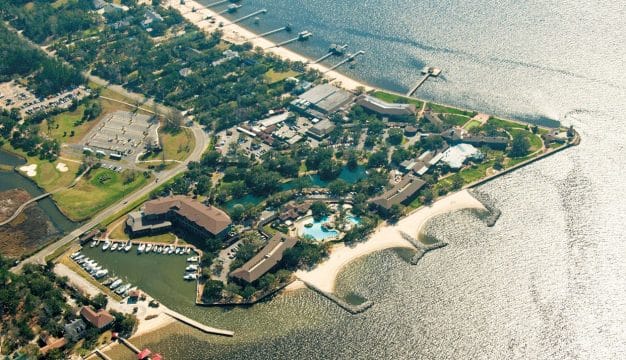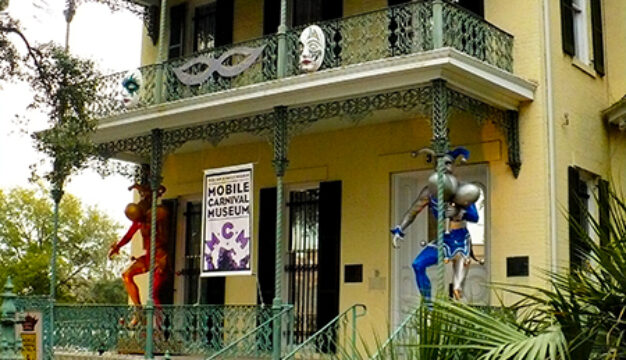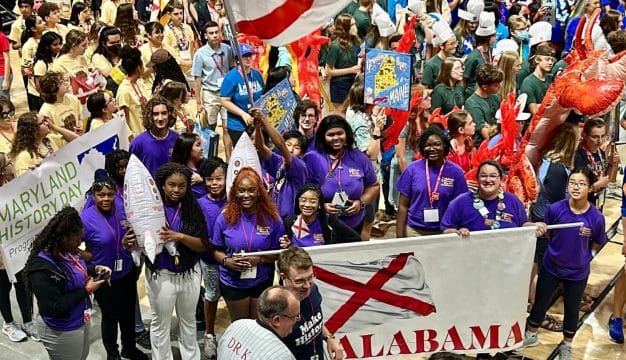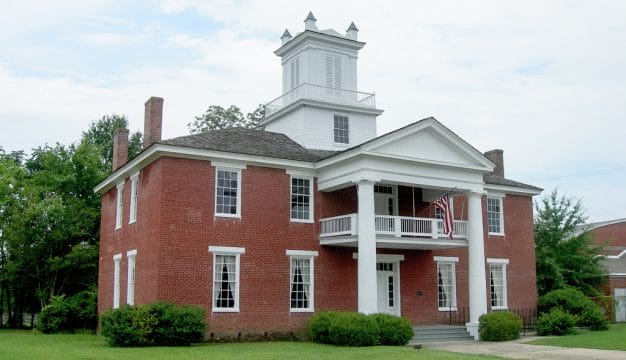Earnie Shavers
 Earnie Shavers
Earnie Dee Shaver (1944-2022), known in his boxing career as Earnie Shavers, was a heavyweight boxer from Butler County. He fought unsuccessfully for two heavyweight titles but is best known for his hard-hitting punches and an epic but unsuccessful bout against Muhammad Ali that left both men battered and exhausted. Ali also gave shavers the nickname "Acorn" because of Shavers's bald head.
Earnie Shavers
Earnie Dee Shaver (1944-2022), known in his boxing career as Earnie Shavers, was a heavyweight boxer from Butler County. He fought unsuccessfully for two heavyweight titles but is best known for his hard-hitting punches and an epic but unsuccessful bout against Muhammad Ali that left both men battered and exhausted. Ali also gave shavers the nickname "Acorn" because of Shavers's bald head.
Shavers was born on August 31, 1944, in Garland, Butler County, to Curtis Shaver and Willie Belle Shaver. He was part of a large family that included nine children as of the 1950 Census. His father was working at the W. T. Smith Lumber Company, headquartered in Chapman, Butler County, at the time he registered for the draft in October 1940. The family also worked some cotton farmland in the county. Shavers has credited his physical build and strength to his work on the farm. Shavers has also related that his father was threatened by a Ku Klux Klan member over money owed for a mule, prompting the family to leave Alabama sometime after 1950. The family settled in Youngstown, Ohio, where, in nearby Cleveland, Shavers recalled that he associated with hoodlums. He graduated from Newton Falls High School, where he participated in athletics. In 1964, he married LaVerne Payne, with whom he would have five daughters. The couple divorced in 1987.
Shavers did not take up boxing until the age of 22. He won a national Golden Gloves heavyweight title and a national Amateur Athletic Union heavyweight title and posted a 20-6 amateur record. In the latter 1960s, he was employed at Lordstown Assembly, a General Motors plant in Lordstown, Ohio. Turning professional in 1969, he later hired renowned boxing promoter Don King and began to rise in professional boxing rankings.
In the early years of his prolific professional career, Shavers fought a few boxers of renown. He defeated former light heavyweight champion Vicente Rondón of Venezuela in August 1972 and Jimmy Ellis with a first-round knockout in June 1973, five years after Ellis held the heavyweight title. He lost to contenders Jerry Quarry in December 1973 (a knockout in the first round in his first loss in 33 fights) and Ron Lyle in September 1975 amid a steady schedule of bouts.
Shavers's most notable match occurred on September 29, 1977, against Muhammed Ali in New York City's Madison Square Garden. It was also broadcast on national TV, a rare event. Vying for several heavyweight titles held by Ali, Shavers traded punches with the formerly fleet-footed Ali for 15 rounds and both were left staggering at the end, but Ali was declared the winner after an energetic finish. Shavers had never fought for 10 rounds prior to this match, so observers at the time expected him to tire early. Ali suffered so much punishment in this match that his trainer, Ferdie Pacheco, and others urged him to retire from boxing. He was later diagnosed with a swollen kidney and brain damage, according to at least one account. Ali refused to retire, and Pacheco quit working for him. Ali later stated that Shavers was the hardest puncher he had ever fought. The fight was featured on the cover of Sports Illustrated, with the caption "Ali's Desperate Hour." The accompanying article focused little on Shaver, however, concentrating mostly on the much more charismatic and well-known Ali.
Shavers followed the Ali fight with a match against Larry Holmes in March 1978 at Caesar's Palace in Las Vegas. Holmes's victory, in a 12-round unanimous decision, enabled him to challenge titleholder Ken Norton, whom he defeated. Shavers returned to the ring in March 1979 against Norton and knocked him out in the first round. With the victory over Norton, Shavers remained in the hunt for the title, knocking Holmes to the mat in the seventh round of their September 1979 rematch, but Holmes recovered to best Shavers after the fight was stopped in the eleventh round. Holmes, like Ali, also spoke about Shavers's punching strength. Shavers was found to have suffered a detached retina.
In the late 1970s, Shavers had fallen into debt from a lavish lifestyle and had his home sold at auction. He pleaded guilty to tax evasion in 1977 and served two years of probation. Not long after, he relocated to Martinsville, Virginia, to be with family.
Among the more notable bouts in his later career, Shavers was defeated by Bernardo Mercado, a contender from Colombia, in March 1980 and then lost to contender Randall "Tex" Cobb on a technical knockout in August 1980, only the second time Shavers had suffered consecutive defeats. He later bested Joe Bugner, a three-time European champion, by technical knockout in May 1982 and lost to James Tillis, best known for later going 15 rounds against Mike Tyson, by unanimous decision in June 1982.
Overall, Shavers won 74 professional bouts (68 by knockout), lost 14, and fought to one draw, retiring in 1983 owing to eye damage. He reentered the ring on several occasions later in the 1980s and twice in 1995, his last match a loss. He later related that suffered two broken jaws, a broken rib, and damaged hands.
In the early 1980s, Shavers was considered for a role in Rocky III starring Sylvester Stallone, who wanted a real boxer in the movie. While the pair sparred, and Shavers with some timidity, Stallone urged Shavers to punch harder. He complied with a shot near Stallone's liver, which with sent the actor vomiting in the bathroom. Shavers did not get the part.
Shavers was invited to England by a fan club for a speaking engagement in the mid-1990s and eventually settled and was married there. He worked as a bouncer in London and as a greeter at a Liverpool branch of a pub chain near his home in Moreton. He also had a boxing memorabilia business and a career as a public speaker, enabling him to recover financially. He spoke frequently at charity fundraisers and in prisons in the United States and England about becoming an ordained minister after finding salvation in 1986. He also resided in Arizona, Nevada, and Virginia at various times.
Shavers was reportedly married several times and had nine children in total. He was inducted into the Nevada Boxers Hall of Fame in 2018, along with Muhammad Ali's daughter Laila. Shavers died on September 1, 2020, in Virginia and was buried in Braceville Cemetery in Newtown Falls, Ohio.
Further Reading
- Shavers, Earnie, Marshall Terrill, and Bob McLain. Welcome to the Big Time. Champaign, Ill.: Sports Publishing LLC, 2002.



